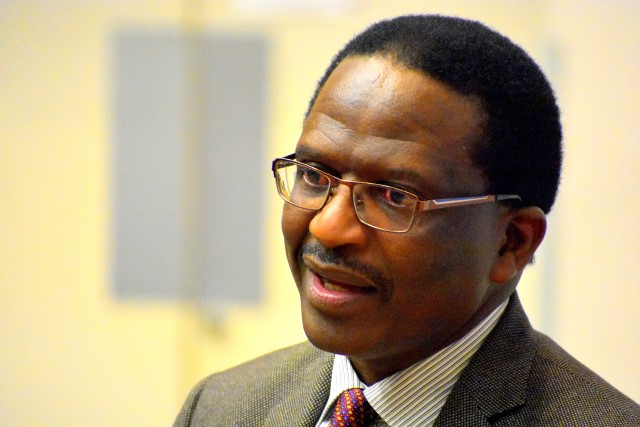
Dear Staff and Students
I hope you are holding up reasonably well in this time of unprecedented uncertainty, anxiety and stress. I am acutely aware of just how difficult it is for all of us to operate under the constant threat of the COVID-19 pandemic. My thoughts are with our staff and students who are in isolation, quarantine or are receiving treatment. I extend heartfelt sympathies and condolences to families of the Rhodes University staff who recently lost their lives, and to our staff and students who have lost a family member due to the COVID-19 pandemic. This is the time when we must reach out to one another in solidarity, compassion and understanding. Let us offer one another support, empathy and encouragement in this trying time.
It is now thirty-one (31) days since our country eased its lockdown restrictions to Alert Level 3 on 01 June 2020. There is now greater economic activity in the country and people are enjoying greater freedom of movement. Regrettably, the easing of the lockdown restrictions has been accompanied by a sharp increase in viral infections. We have read some deeply worrying stories in print and electronic media regarding the state and capacity of the healthcare system in the Eastern Cape. Indications are that the healthcare system is teetering on the brink of a collapse. This is very concerning.
When President Ramaphosa announced that our country would be transitioning from Alert Level 4 to Alert Level 3 on 01 June 2020, he warned, “I want to emphasise that the easing of some restrictions does not mean that the threat posed by the coronavirus has passed or that our fight against the disease is over. In fact, the risk of a massive increase in infections is now greater than it has been since the start of the outbreak in our country. At this time, more than any other, we are reminded of the words of Madiba, when he said ‘it is now in your hands’.”
When the President made this announcement on 24 May 2020, confirmed cases of COVID-19 stood at 22 583 and 429 people had succumbed to the COVID-19. Today, the positive cases have risen to 159 333 and the number of those who have succumbed to the virus is 2 749. So, in one month and one week after the easing of the lockdown to Alert Level 3, a further 136 750 people have tested positive for the virus and 2 320 have lost their lives. Today, we have also recorded the highest 24- hour increase of 8 124 in positive cases. The Eastern Cape has the second highest number of deaths, after the Western Cape. These figures tell a grim story. It was to be expected that the easing of the lockdown restrictions would lead to a sharp surge in the number of viral infections.
We are not helpless nor are we without agency in the face of this pandemic. It is indeed in our hands to slow the transmission of the virus. There is no vaccine or cure for COVID-19. The crisis we face isless of a medical or healthcare challenge, and more of human attitude and behaviour. One can never stress enough the importance of adhering to the rigorous non-pharmaceutical safety and preventative measures such as wearing of face masks in public, physical distancing, washing hands frequently with soap or using a sanitiser, and avoiding crowded places.
I am deeply distressed to learn from the townsfolk that some of our Oppidan students are holding parties and not adhering to the hygiene and physical distancing protocols. This irresponsible and reckless behaviour stands condemned in the strongest terms. Such a callous disregard for the health, safety and wellbeing of others in our community, particularly those living with underlying chronic health conditions, cannot be tolerated. Local residents are rightly concerned that the return of the students to Makhanda will lead to a surge in cases in our city and place residents at great risk of contracting the virus.
Let us spare a thought for, and honour, all our healthcare workers who are on the frontlines of our nation’s fight against this deadly pandemic. Every single day, they expose themselves and their loved ones to the risk of the virus to save and care for the lives of others. I commend them for their courage, bravery and selfless service to our nation and humankind.
The road ahead will be a long and difficult one. We will have to learn to live with this virus for some time to come while we do all we can to contain its spread in, and limit its impact on, our community. We cannot afford to lower our guard. The nature and magnitude of the challenges posed by the COVID-19 pandemic must remind us that we are all connected to one another and share the vulnerability to the virus. Now, more than ever, let us strengthen and deepen our sense of community and care towards each other. Let us check on one another. Let us encourage and support one another. Let us be our best selves and show compassion, kindness and empathy towards others. In these testing times, let us reach out to those who are experiencing stress, depression, loneliness and anxiety. We are all in this together. We should never underestimate the power we have to offer hope, support and reassurance to one another in this time of fear and anxiety.
As challenging and uncertain the circumstances are, let us maintain our optimism for a better future. This crisis will eventually end. We do not know when. But it will end. Warmest wishes and, please keep safe, well and vigilant.
Sizwe Mabizela, Vice-Chancellor, Rhodes University
